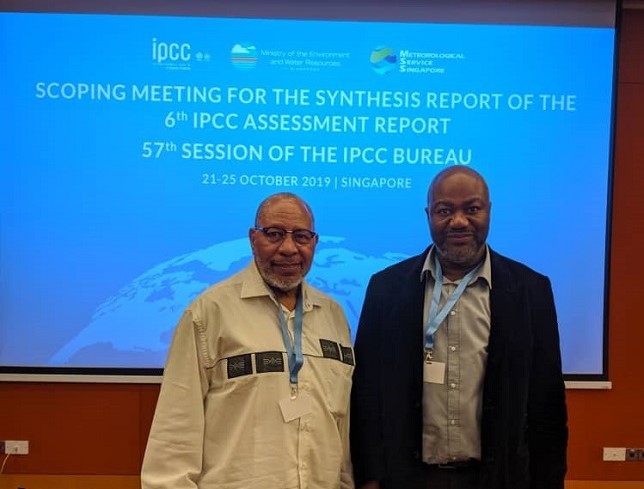A scoping meeting of the Sixth Assessment Report (AR6) Synthesis Report (SYR) is hoping to develop a draft outline that will form the basis for the development of the full AR6 Synthesis Report.

The weeklong meeting opened on Monday, October 21, 2019 at the Resorts World Conventions Centre in Singapore.
The Synthesis Report is the document that combines and synthesises the key messages from the three different IPCC reports, all of which are currently under production. These are Working Group I report on the Scientific Basis of Climate Change; Working Group II on Climate Adaptation and Vulnerability; and Working Group III report on Climate Mitigation including carbon removals.
Experts from about 60 countries were selected from the nominations submitted by Governments and IPCC Observer Organisations to attend the meeting. These experts were selected by the IPCC Chair in consultation with Working Group Co-Chairs with attention paid to coverage of all relevant disciplines and viewpoints, regional and gender balance and a balanced approach to selecting experts and representatives from IPCC user communities as well as experts that have been involved in past IPCC reports.
It is expected that participants, in addition to providing specific contributions in their respective areas of expertise, should also address cross-cutting issues and policy topics relevant for the AR6 SYR through an integrated approach.
The IPCC Chair, Professor Hoesung Lee, expressed the hope that the Synthesis Report would be written in ways that will help governments find solutions to climate change. He said that the Synthesis Report would shine light on the current disconnect between the reality of climate change and the current scale of action. He called on the participants to strive to make it one of the most relevant in the history of the IPCC and tuned to help the global stocktake that will be done in 2023.
The Ministry of the Environment and Water Resources in Singapore, who is the chief host, expressed delight that the crucial meeting is being hosted by the government of Singapore and urged the delegates to ensure that the Synthesis focused on solutions and ideas that will help government scale up their action on climate change.
The Minister, Masagos Zulkifli, underlined the need for science of to respond adequately to information needed by policymakers by addressing appropriate policy-relevant scientific technical and socio-economic issues.
Zulkifli stated that Singapore was making concerted effort in both climate mitigation and adaptation but stressed that a united global system is necessary to achieve more sustainable results.
He noted that the rise of nationalism and protectionism around the world poses serious risk to climate cooperation and called for multilateral co-operative frameworks to be strengthened to give the world a decent chance of solving climate change. He warned that failure by governments to deal with climate change would lead to more uprising and agitation by young people to demand the protection of their future.
Professor Chukwumerije Okereke, Director of the Centre for Climate Change and Development, Alex Ekwueme Federal University, Ebonyi State, who is representing Nigeria at the Scoping Meeting, said that strong developing country participation in the Synthesis Scoping meeting was necessary to ensure that the concerns of developing countries are properly reflected in this foundation and critical document.
He said developing countries often struggle to make their voices heard in critical moments in the IPCC and United Nations Framework Convention for Climate Change (UNFCCC) meetings because they neglect to participate effectively in the early periods when the foundation for the reports are being laid.
A report on the outcome from the scoping meeting will be submitted for consideration and approval by the Panel at its 52nd Session for a decision on whether to prepare a report and agree on its scope, outline, and the work plan including schedule and budget. It is expected that the Synthesis Report will be approved in an IPCC Plenary Session in May 2022.
By Chukwumerije Okereke
